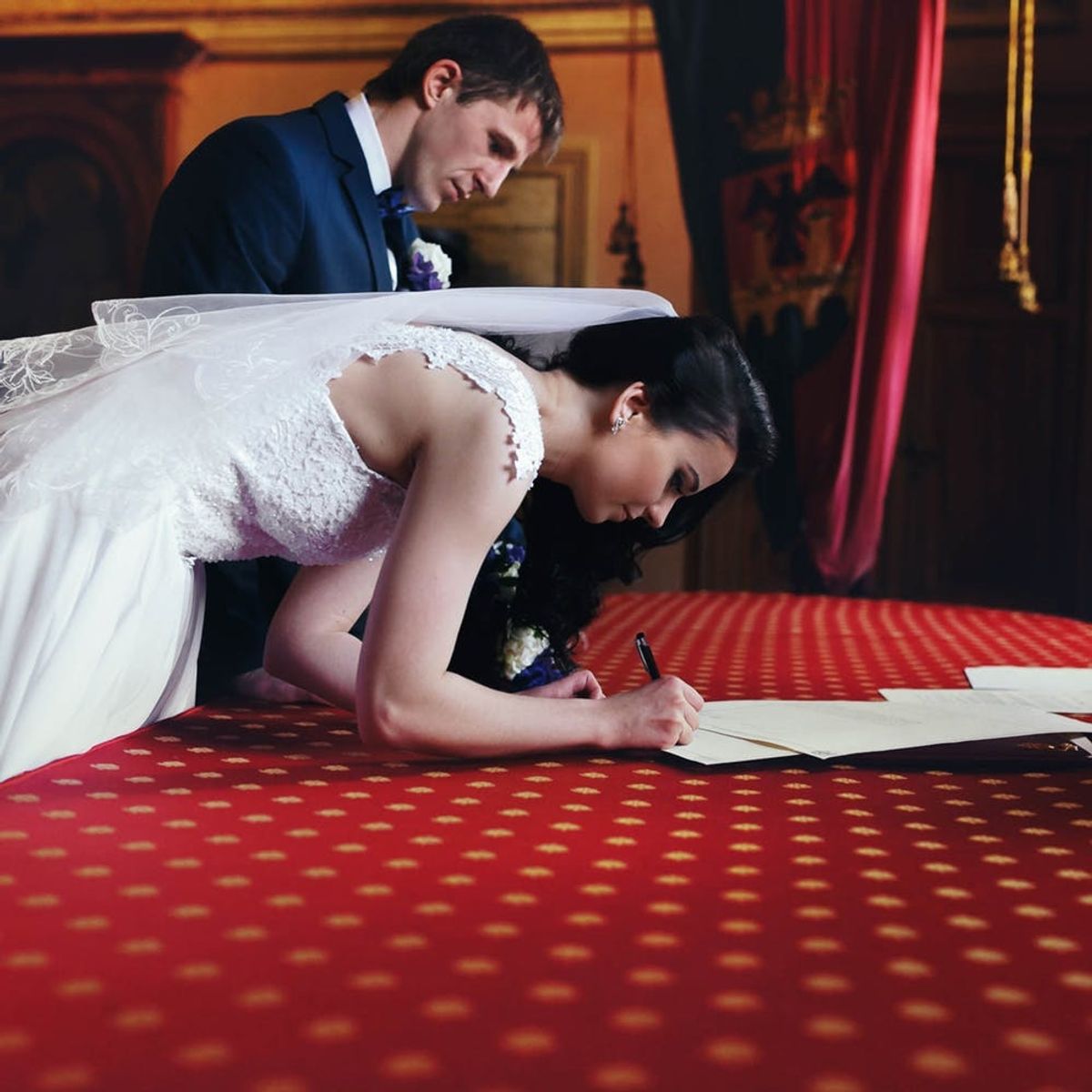Changing Your Name After Marriage? Read This First

As a single twenty-something just figuring out the whole adulting thing, the thought of changing my last name post-marriage was far from my mind. With my head full of things like struggling to find the perfect work-life balance and planning my dream vacation to the coolest libraries in the US, marriage just wasn’t something I considered on the daily, let alone all the life-changing decisions that go along with it… until I had to review my passport.
Her response stuck with me and led me down a research rabbit hole to try and figure out just how much work it was, and why people choose to go through the hassle.
Why People Change Their Last Names
The history behind why British wives took on their husband’s last names can be a rough read for any feminist, let alone any LGBT ally. According to the BBC, prior to the 14th century, married women were perceived to have no surname because — here’s where it gets cringe-y — a woman was legally her husband’s possession. Around the 15th century, women in England began taking their husband’s last name after marriage to symbolize that the union made the couple “a single person, because they are one flesh and one blood,” according to English jurist Henry de Bracton. This tradition hopped over to America and was commonplace until Lucy Stone became the first American woman to legally maintain her last name in 1856.
Since gaining the choice to keep their last name after marriage, American women have been opting to keep their maiden surname more and more. According to a survey conducted by The New York Times, approximately 20 percent of married women decide to stick with their surname, while 10 percent choose a hyphenated option or keep their maiden name for professional purposes.
Is Changing Your Last Name Anti-Feminist?
Learning the history behind why people traditionally changed their last names can definitely make any feminist think twice about changing their surname at the altar. But before I took a hard stance that would follow me throughout my life and relationships, I thought it would be best to hear what actual married women think of the tradition.
Vogue culture writer Patricia Garcia beautifully sums up the most common argument I found: “For the record, I am a loud and proud feminist, so I was a little annoyed at his implication [that it was anti-feminist to take my husband’s last name]. My recent interest in changing had little to do with tradition. The truth is, in purely aesthetic terms, his name is better than mine; it sounds exotic and less banal.”
The more I researched, the more I found instances of people choosing to change or keep their surname for reasons that went well beyond the patriarchal roots of the tradition. For instance, in Bustle’s recent survey of 27 women who chose not to change their last name post-nuptials, the women’s responses ranged from professional — “I’m a writer and editor, so my byline is tied to my current last name” — to more practical — “My maiden name is easier to pronounce and spell correctly.”
Sure, there were still a few women who used the patriarchal undertones of the traditional surname takeover to give merit to their decision — “It’s embarrassing as a society that we permit that” — but for the most part, the women in this survey made the decision to keep or change their surname based on the career or personal impact it had on their lives.
Final Thoughts
Although the original reasons why women adopted their partner’s last names are definitely a sour topic for feminists, the modern bride shouldn’t be all that concerned about the stigma attached to changing their surname. As a proud feminist myself, simply having the option to choose any surname I would like — whether that’s my maiden name, my future partner’s name, a hyphenated option or a slick new surname of my invention — is enough to warrant a happy dance.
Since identity and naming are practically intertwined — read this amazing story about transgender naming ceremonies, for example — it’s important to not give into our preconceived notions about why we think someone should or should not change their surname. Rather, we should let the women in our lives choose their surname for themselves and celebrate a union, not a title.
P.S. Let’s be honest: Ashley Tacos would be an awesome name. I’m just saying.
Did you change your last name after marriage? Let us know on Twitter by mentioning @BritandCo.
(Photos via Getty)



















